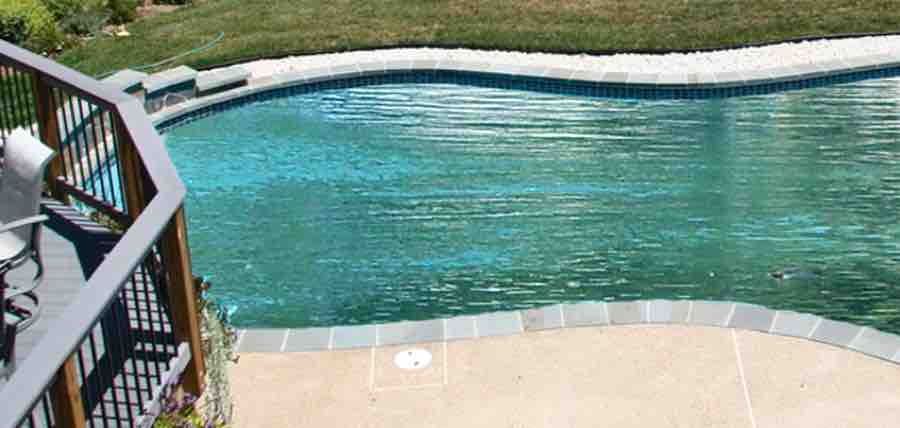Why Is My Pool Water Cloudy and What Do I Do?
There is nothing like diving into a crisp, clear pool after a long, hot day. That is if your pool is actually clean and clear. There are many things that can cloud up your pool water and make it less than inviting.
Can You Swim in A Pool That Is Cloudy?
Some people will jump right into their swimming pool without thinking about it, whether the water is clear or not. But, unfortunately, the elements that are clouding up your water can also make you very sick. This is not always the case, but it is better to be safe than sorry.
How Do You Clear Up a Cloudy Pool?
Cloudy water can be caused by the surrounding environment. Algae are a big concern. But, birds, equipment causes, nearby construction, runoff from gardens, and even the people swimming in your pool wearing sunscreen that leaches into the water could also be the problem.
Can Too Much Chlorine in A Pool Make It Cloudy?
The Sun and weather can wreak havoc on pool chemicals, chlorine levels, and water balance. Excessively high levels of chemicals can lead to high alkalinity or pH, too much calcium or too much chlorine. The only way to know for sure is to test the water. Sometimes the water will be cloudy after shocking your pool for sanitation. This is because of high chlorine levels. In this case, all you have to do is wait and your pool water should clear up over time.
Of course, the most obvious cause could be a faulty filtration system. Keep in mind that you should be running your filter for a minimum of eight to 10 hours per day. Just running the filter for a couple of extra hours could clear up the water by providing extra circulation. But, if running your filter overtime does not work, your filtration system itself might not be working right.
The ABCs of Clearing Cloudy Pool Water from Expert Pool Builder Katy, TX
A). The Waiting Game. If too much chlorine is causing your cloudy pool, just play the waiting game. Some chlorine will be lifted away by sunlight. If your filter is doing its job, you should have clear water within a reasonable period of time. If you have shocked your pool with a megadose of chlorine, you may need to change the brand and make sure the main ingredient is calcium hypochlorite.
B). Flocculants. These will not help your filter clear the pool. Rather, it performs its clearing action by sending all of the unwanted debris down to the floor of your pool. Use your pool pump to vacuum it out. Pool flocculants are highly effective against algae, but you will be required to do a little bit of work. It is best to vacuum thru the skimmer. Remember to keep the garden hose running refilling the pool as you vacuum as you will lose water vacuuming this way.
C). Clarifiers. Consider using a pool clarifier every week. They work by clumping the molecules of unwanted material together, so your filter can flush them away. Pool clarifiers are also called coagulants.
If you have an aboveground pool and there is no bottom drain. In this case, place the vacuum cleaner on the pool floor in the middle. Turn the vacuum cleaner upside down and it will now pull water from the bottom and release clean filtered water.
At Pulliam Pools located in Katy, Tx, we are your premier pool builder in the Houston area. We are always happy to help and provide knowledge and advice to anyone requiring information.
We provide complete new pool construction as well as outdoor living amenities. Let us design and build your perfect outdoor kitchen, outdoor patio cover, water and fire features.
We pride ourselves on our outstanding reputation in all of these areas. Feel free to contact us here.


Recent Comments